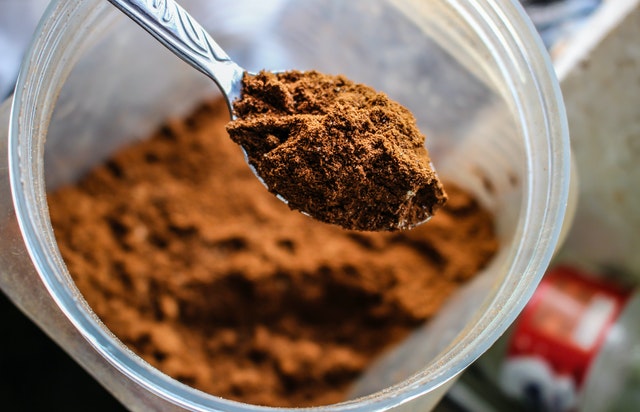A new study was performed to assess whether cocoa supplements can reduce the risk of heart attack, stroke, and other cardiovascular events.
Although they are mostly known as an ingredient in chocolate, recent research suggests that the cocoa plant could be a source of many valuable chemicals called phenols.1 Three notable types of plant phenols identified within cocoa are:
- catechins
- anthocyanins
- proanthocyanins 1,2
Notably, these phenols have the ability to act as antioxidants, which work to neutralize the free-radicals that are produced when the body is exposed to certain environmental stressors.1
Catechins are often found in tea leaves, red wine, and many fruits and vegetables.4
Anthocyanins, on the other hand, are colored pigments that are responsible for red, blue, and purple hues in fruits or vegetables.3
Historically, they have been used in traditional medicine, and a few recent studies suggest that they could potentially be associated with a variety of health benefits.2
Interestingly, some research suggests that these antioxidants could potentially help protect against cardiovascular disease.2,4,5
Catechins in particular may influence certain hormones that constrict or relax blood vessels, and some studies suggest that consumption of catechins from green tea was associated with lower blood pressure and a reduced risk of stroke and coronary heart disease.4,6,7
A group of researchers was curious as to whether taking cocoa extract as a supplement might be associated with similar effects, given its content of these antioxidants.5
A study was performed, and the results were published in The American Journal of Clinical Nutrition.5
For this study, 410 participants took a cocoa extract supplement containing 500 milligrams (mg) of flavonols, including 80 mg of epicatechins, for an average time period of 3.6 years.
Meanwhile, a control group of 456 participants took a placebo supplement.5 Participants were either men over the age of 59 or women over the age of 64 and none of them had severe cardiovascular disease or recent cancer diagnoses.
Participants were monitored from June 2015 through December 2020.
The primary outcome of the study was to determine whether there was an altered risk of cardiovascular events, including stroke, carotid artery disease, surgery to the peripheral arteries, angina, and myocardial infarction, which is commonly referred to as heart attack.5
The study did not find a significant difference in the occurrence of cardiovascular events between the two groups.5
However, the group taking cocoa extract supplements had a 27% lower rate of cardiovascular disease-related deaths compared to the control group within the study period.
Although the results of this study did not find a significant association between cocoa extract and rates of cardiovascular events, it warrants further research into the potential benefits of cocoa extract.
More research is needed to determine whether cocoa extract supplementation can help decrease the mortality risk associated with cardiovascular disease.
References
- Baharum, Z., Akim, A.M., Hin, T., et al (2016, February). Theobroma cacao: Review of the extraction, isolation, and bioassay of its potential anti-cancer compounds. Trop Life Sci Res 27(1): 21-42. Accessed 2022, March 22, from https://www.ncbi.nlm.nih.gov/pmc/articles/PMC4807961/#b47-tlsr-27-1-21
- Khoo, H., Azlan, A., Tang, S., et al (2017). Anthocyanidins and anthocyanins: colored pigments as food, pharmaceutical ingredients, and the potential health benefits. Food Nutr Res 61(1): 1361779. Doi: 10.1080/16546628.2017.1361779
- Hii, C., Law, C, Law, S., et al (2009). Polyphenols in cocoa (Theobroma cacao L.). Asian Journal of Food and Agro-Industry 2: 702-722. Accessed 2022, March 23, from https://www.researchgate.net/publication/284800915_Polyphenols_in_cocoa_Theobroma_cacao_L/citation/download
- Bernatoniene, J., Kopustinskiene, D.M. (2018, April). The role of catechins in cellular responses to oxidative stress. Molecules 23(4): 965. Doi: 10.3390/molecules23040965.
- Sesso, H.D., Manson, J.E., Aragaki, A.K., et al (2022, March 16). Effect of cocoa flavanol supplementation for prevention of cardiovascular disease events: The COSMOS randomized clinical trial. The American Journal of Clinical Nutrition nqac055. Doi: 10.1093/ajcn/nqac055
- Chacko, S.M., Thambi, P.T., Kuttan, R., et al (2010, April). Beneficial effects of green tea: A literature review. Chin Med 5(13): doi: 10.1186/1749-8546-5-13.
- Mandel, S., Maor, G., Youdim, M.B. (2004). Iron and alpha-synuclein in the substantia nigra of MPTP-treated mice: Effect of neuroprotective drugs R-apomorphine and green tea polyphenol (-)-epigallocatechin-3-gallate. J Mol Neurosci 24: 401-416. Doi: 10.1385/JMN:24:3:401
Photo by samer daboul from Pexels



